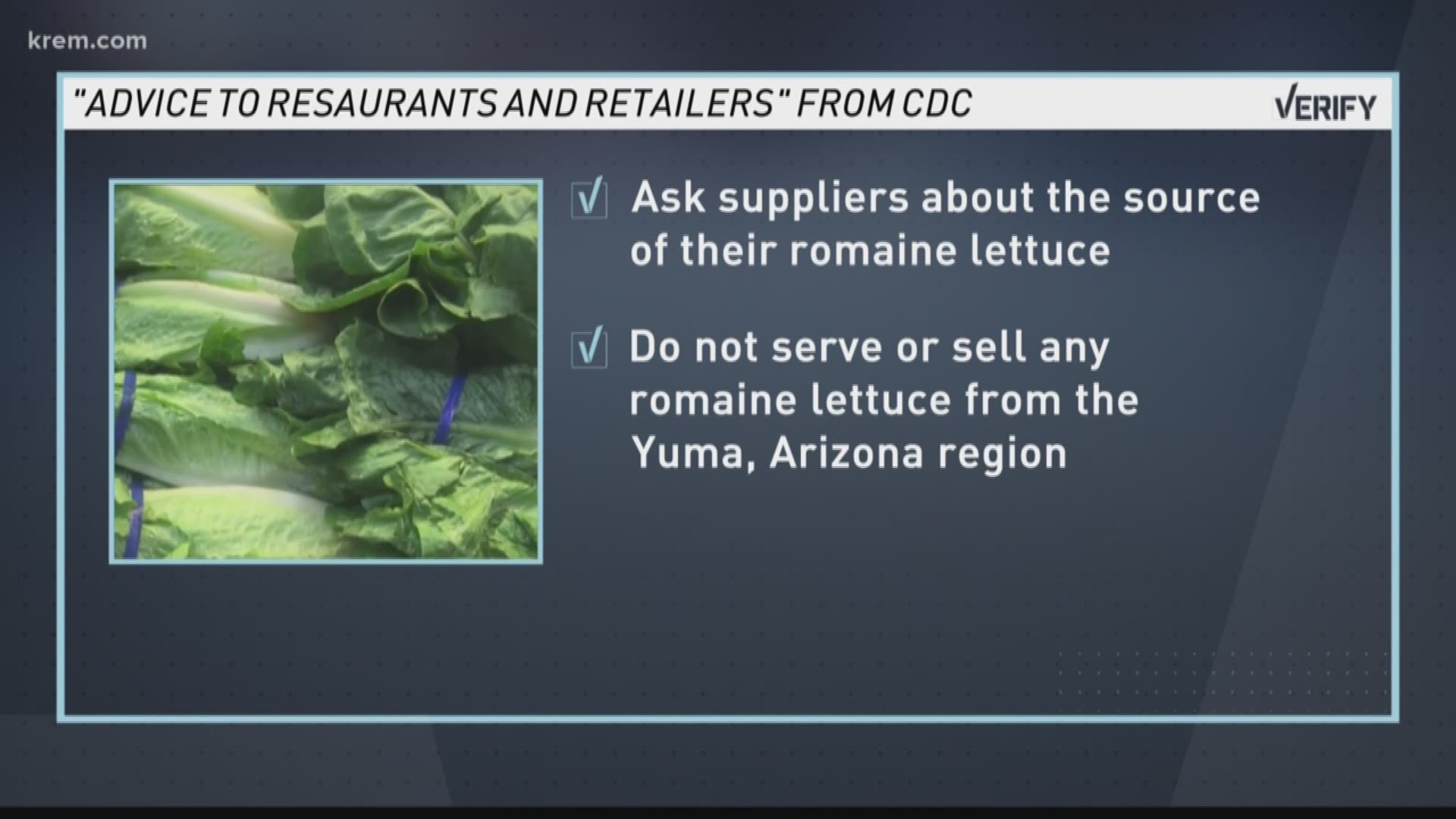More cases of E.coli linked to romaine lettuce are likely to be announced over the next week according to a Seattle-based internationally known food-borne illness attorney, but the worst is probably over.
"Hopefully this thing is winding down, but I think we'll still see another 20, 25 cases in the next week," said Bill Marler.
As of Friday afternoon, he was representing 55 of the 98 people affected by the outbreak, including nine of the 10 who have suffered kidney failure.
"It runs the gamut, from a 6-year-old who's still in the hospital getting blood transfusions, hoping he doesn't have to have dialysis, to a young girl who's out of the hospital now, but now on home dialysis," he said.
Three more people in Washington state have been sickened by the E. coli strain, the Centers for Disease Control announced, bringing the total to five in Washington.
The CDC's "case count map" was updated Thursday to include the additional cases.
The 98 cases span 22 states. Forty-six patients were hospitalized. So far no deaths have been reported.
Investigators have not yet identified a grower, supplier, distributor or brand responsible for the outbreak, the CDC said, although it has been traced to the Yuma, Arizona, region.
The CDC warns people not to eat any form of romaine lettuce from Yuma area. Romaine confirmed not to be from the Yuma area is OK to eat.
The E. coli spreading through the states is "toxin-producing," the CDC states — specifically a toxin known as Shiga. People get sick within two to eight days of swallowing the germ, which causes diarrhea, stomach cramps, and vomiting. Although most recover in one week, it could lead to kidney failure.
To avoid E. coli, wash your hands regularly and thoroughly, cook meat completely, wash fruits and vegetables, avoid raw milk and don't prepare food when you're sick. If you find yourself sick, write down what you've eaten, contact your doctor and report your illness to your local health department.
The CDC, the U.S. Food and Drug Administration and states are investigating the outbreak, which began March 13.
The Wednesday update adds Colorado, Georgia and South Dakota to the list of affected states. Pennsylvania has the most number of cases with 18, followed by California with 13 and Idaho with 10. Those affected are 65% female and range in age between 1 and 88 years old.
KING 5's Greg Copeland contributed to this report.




